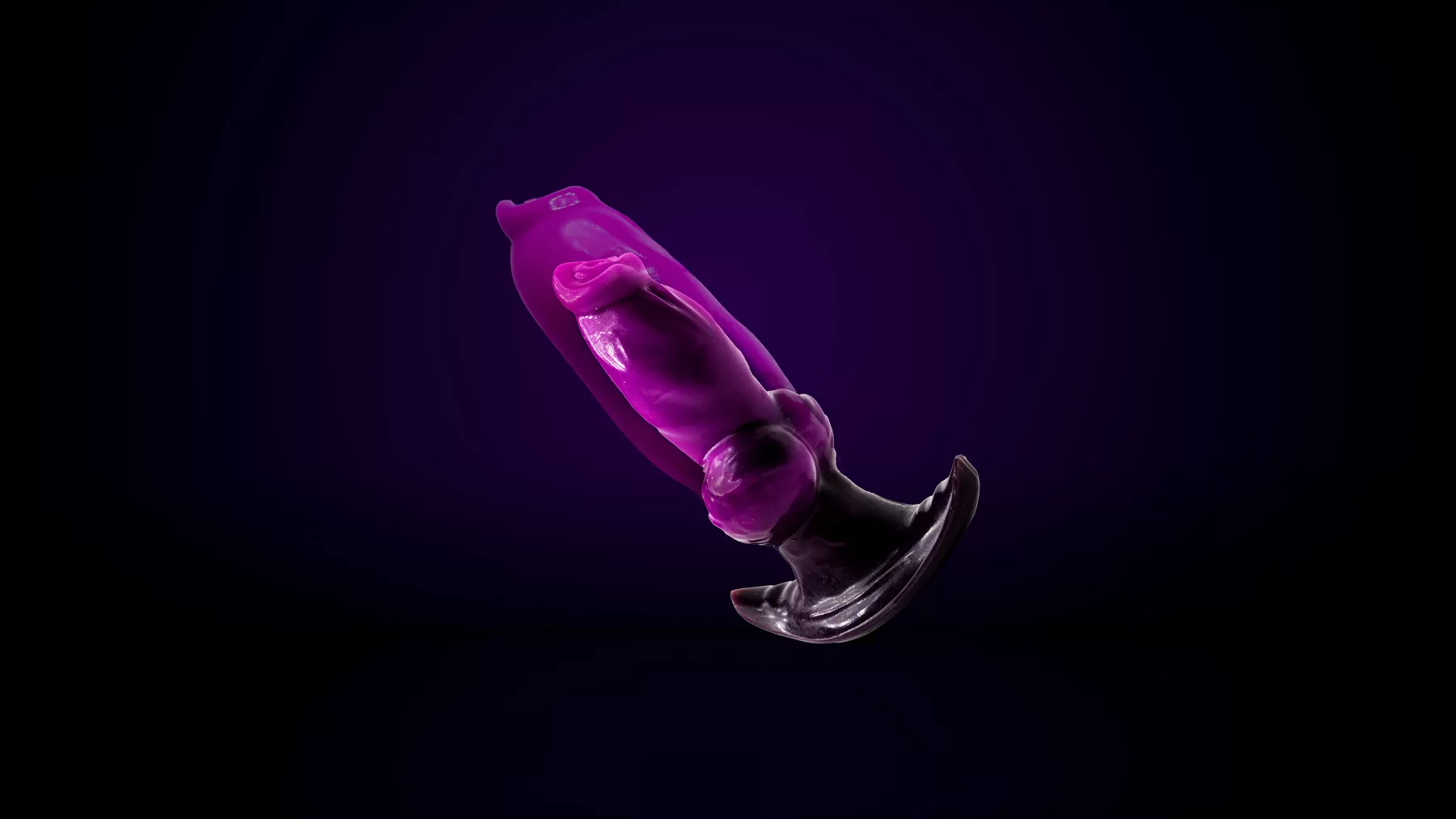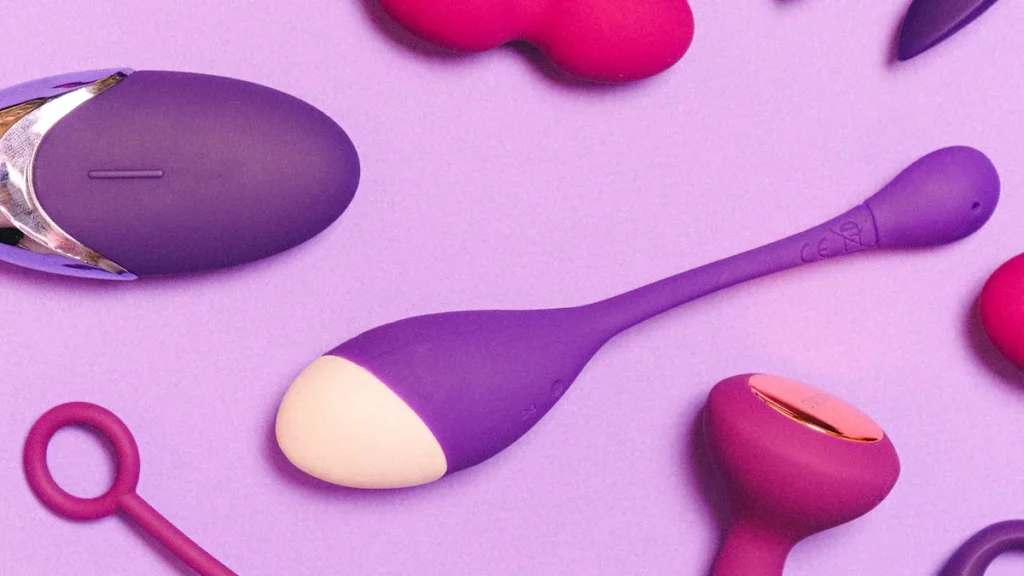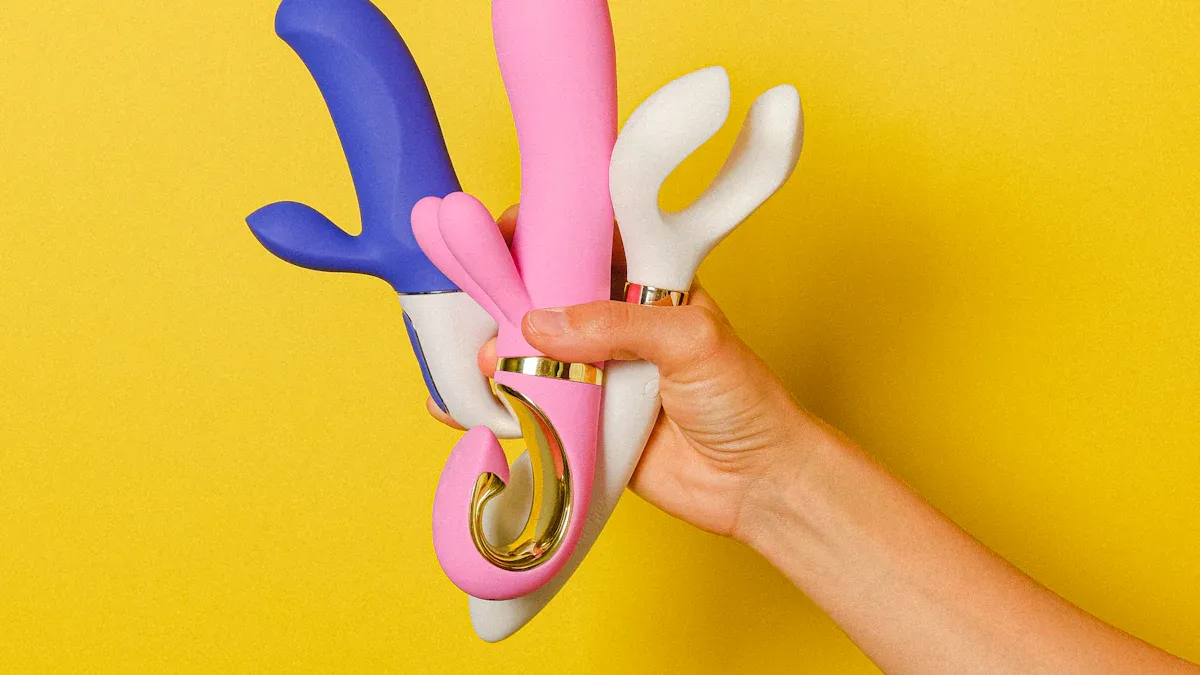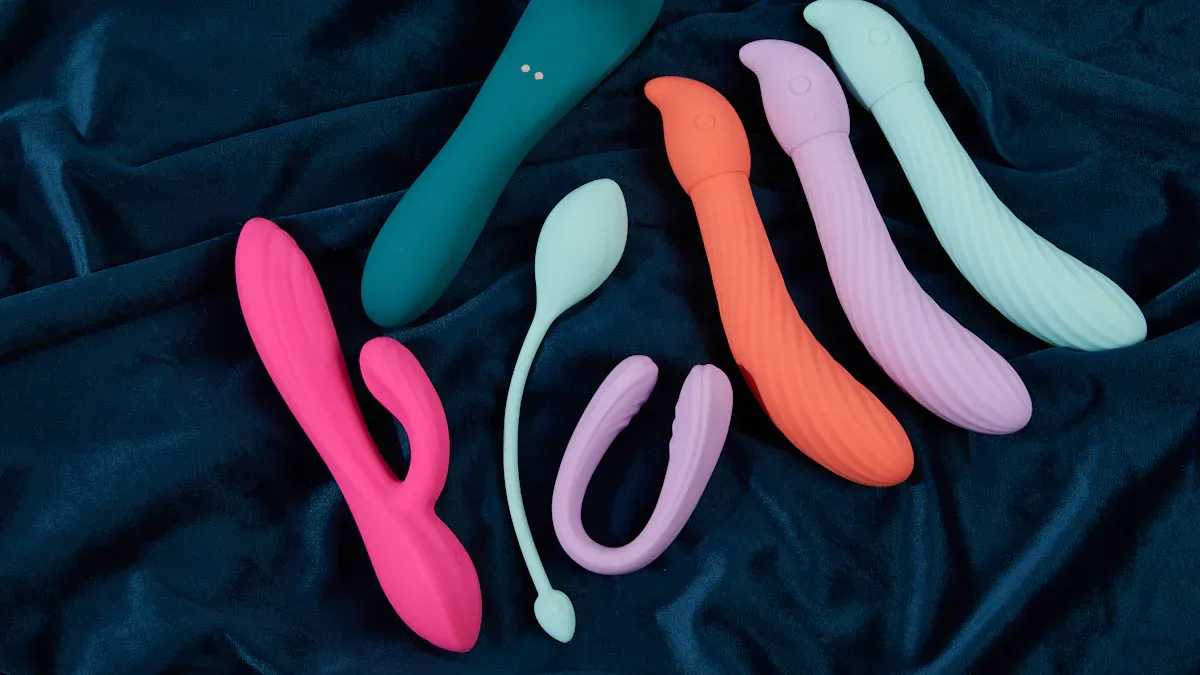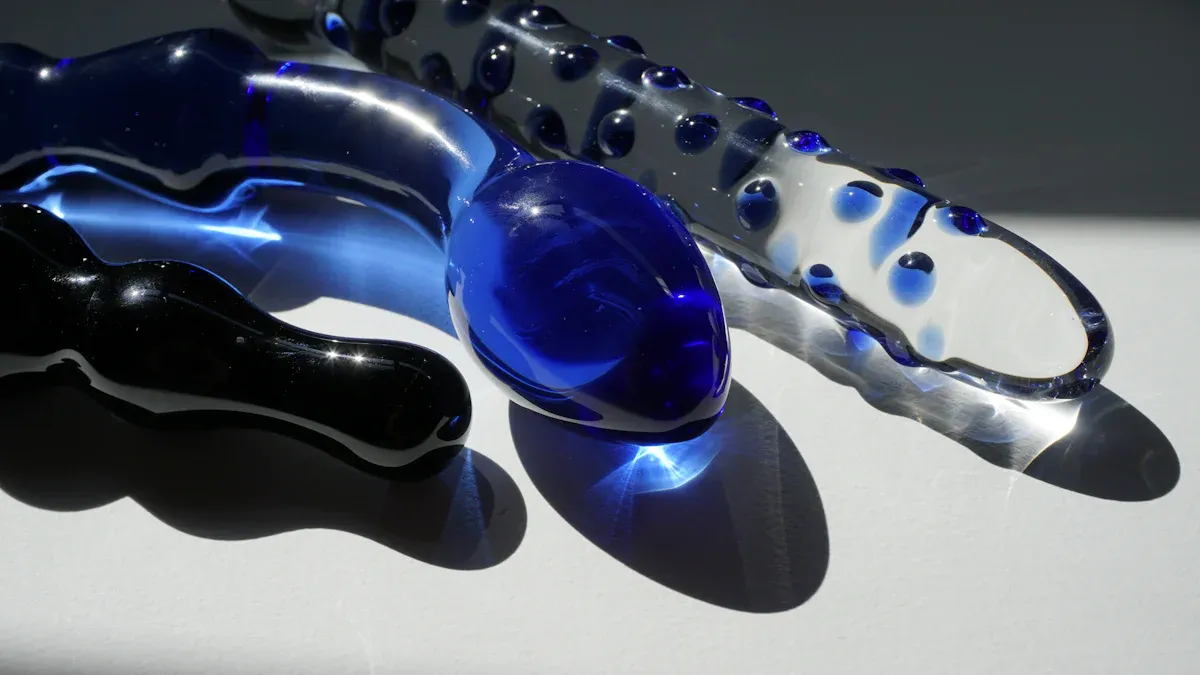What Are PVC Dildos and How Are They Made
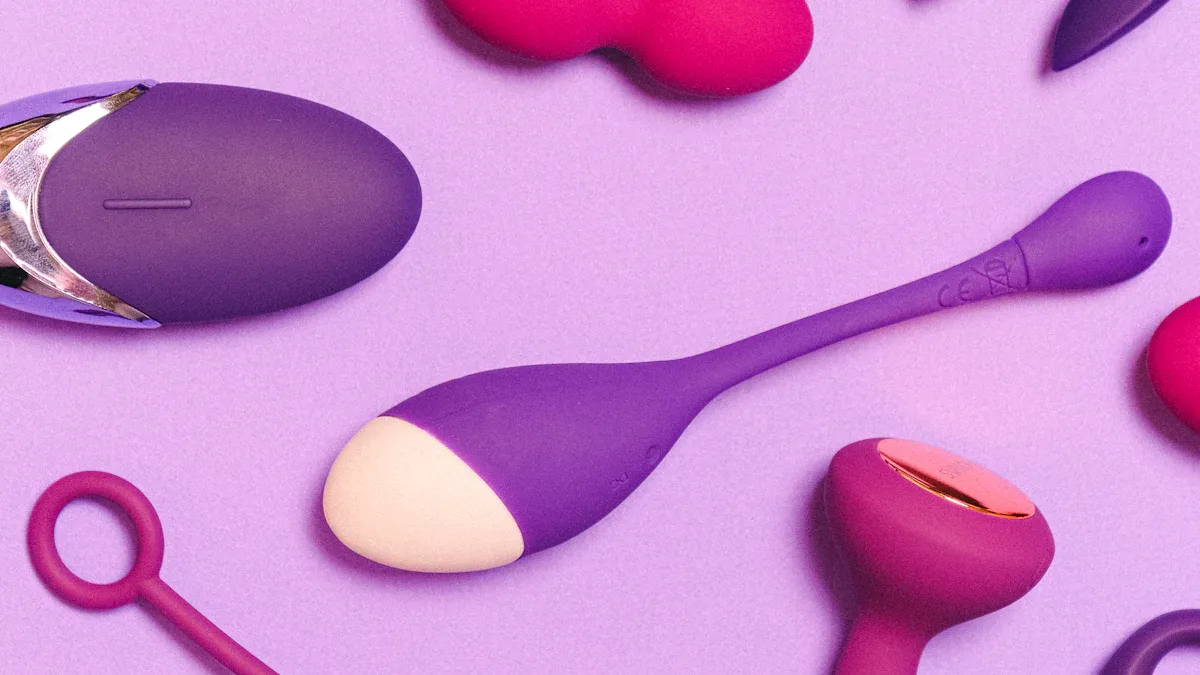
You may see that pvc dildos look and feel unique. Makers use polyvinyl chloride, or pvc, to create these dildos. Many people choose a pvc dildo because it is cheaper than silicone or glass ones. You can find many shapes, like Luminous Dildos, Finger Dildos, and the well-liked shower dildo. Pvc is soft and bends easily, so these toys feel real. Some people say there is an oily layer or a strong smell, but the low price makes pvc dildos a favorite for people who want cheap sexual health products.
PVC Dildos Overview
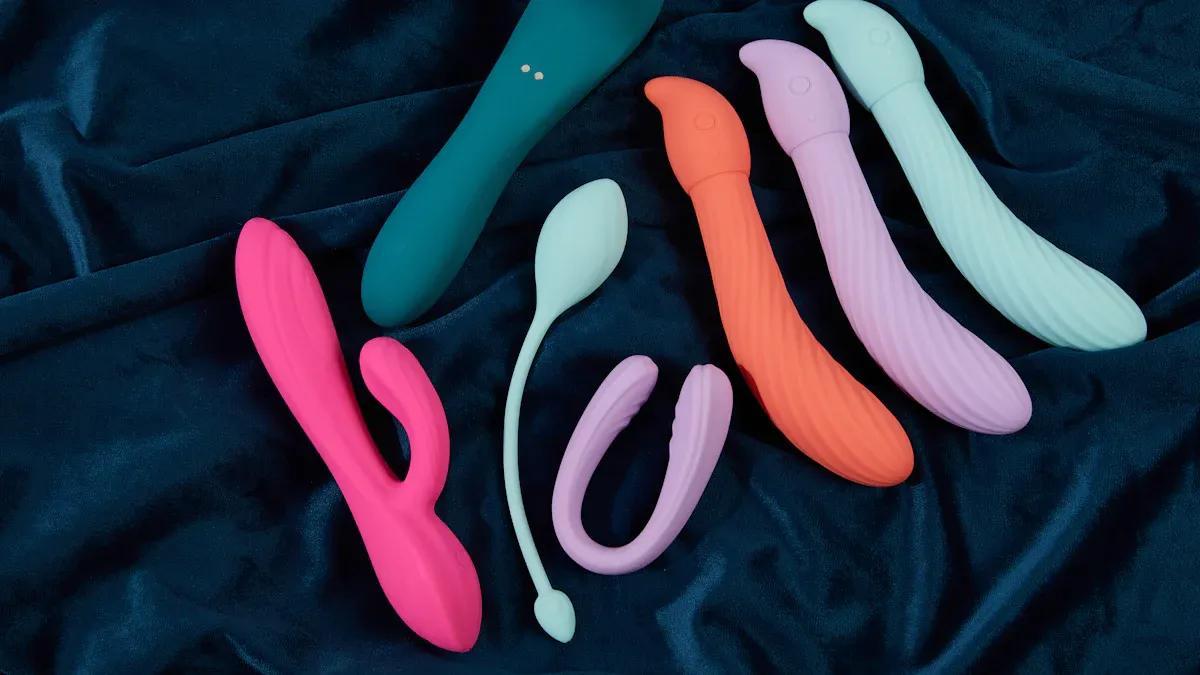
What Is a PVC Dildo
You might wonder how a pvc dildo is not like other dildos. A pvc dildo is made from polyvinyl chloride, which is a man-made plastic. This material makes the dildo soft and bendy. Many people buy a pvc dildo because it is cheaper than others. You can find these dildos in adult stores and on websites. Some people notice a strong smell or oily feel when they open a new pvc dildo. This is because of the plasticizers inside the material.
Tip: Always look at the packaging to learn about the materials and safety before buying a pvc dildo.
Pvc dildos can look very real. The material lets makers add lots of details and textures. This is why many people like them for a lifelike feel.
Common Features
PVC dildos have some features that make them different from other sex toys. Here is a table that shows how pvc dildos compare to dildos made from platinum silicone:
Characteristic | PVC Dildo | Dildo made from Platinum Silicone |
|---|---|---|
Material Type | Synthetic plastic polymer | Silicone rubber cured with platinum |
Cost | Affordable and common | More expensive, premium material |
Safety | May contain phthalates linked to health risks | Hypoallergenic, non-toxic, phthalate-free |
Durability | Less durable, prone to tearing and degradation | Highly durable, maintains shape and integrity |
Flexibility | Limited flexibility | Superior flexibility, conforms comfortably to the body |
Surface Porosity | Porous, can harbor bacteria | Non-porous, resists bacteria and contaminants |
Hygiene | More challenging to clean and maintain | Easy to clean, more hygienic |
PVC dildos are cheap and easy to buy. They feel soft, but they do not last as long as silicone dildos. The surface of a pvc dildo has tiny holes. These holes can trap germs if you do not clean it well. Some pvc dildos have chemicals called phthalates. These chemicals can be bad for your health if you use the dildo a lot.
PVC Sex Toys Variety
Pvc sex toys come in many shapes and sizes. The material lets makers create toys that look real. You can pick a pvc dildo that looks and feels like a real penis. Some pvc dildos have suction cup bases. These let you stick the dildo to a flat surface for hands-free fun. Other pvc sex toys have vibrating parts or hollow spaces. Some even have special features, like squirting for a more real feeling.
Pvc sex toys also come in different sizes. You can choose a small one if you are new. Bigger sizes are there for people who want more. Pvc dildos come in many colors. Some look real, and some are bright or silly.
Note: Always pick a pvc sex toy that feels right for you. Try to read reviews or ask someone for help if you are not sure what to get.
Pvc sex toys give you lots of choices if you want to try new things. They are cheap and come in many styles, so many adults like them.
PVC Dildo Manufacturing
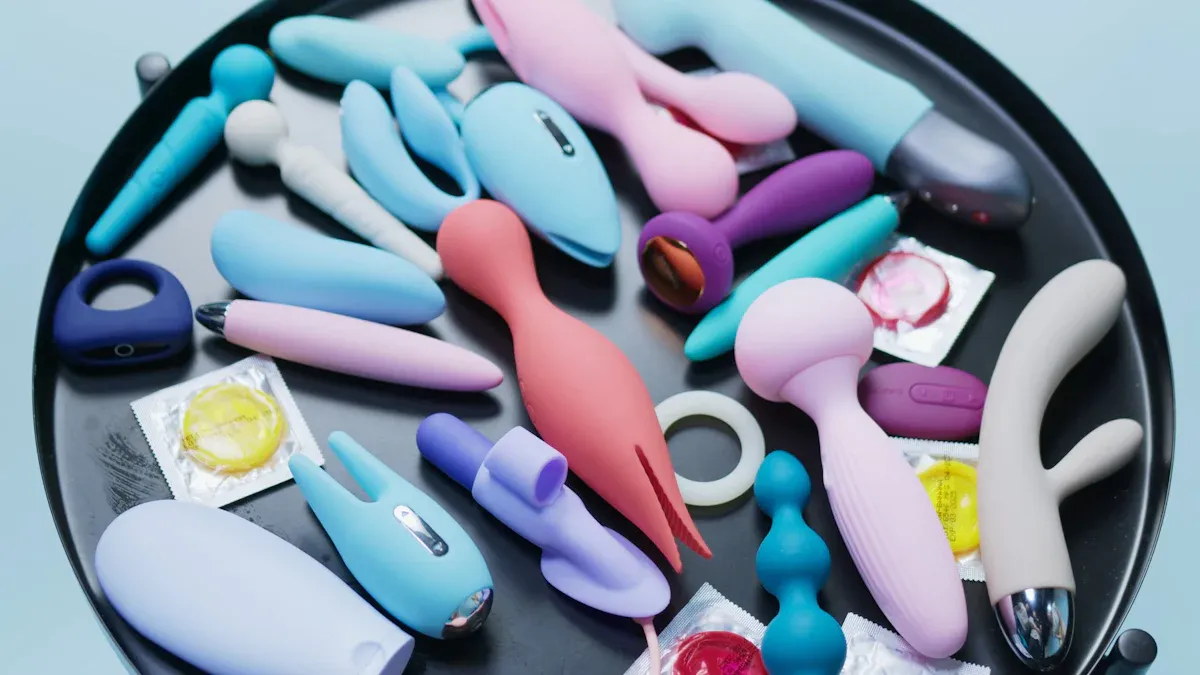
Materials and Plasticizers
When you look at a pvc dildo, you see more than just plastic. Makers use polyvinyl chloride, or pvc, as the main material. To make the pvc dildo soft and flexible, they add plasticizers. Phthalates are the most common plasticizers in pvc sex toys. These chemicals help the dildo bend and feel real. Some of the most used plasticizers include:
Plasticizer Type | Description and Usage |
|---|---|
Diethyl phthalate (DEP) | Used in cosmetics and as a solvent. |
Di (2-ethylhexyl) phthalate (DEHP) | Most common in pvc, low cost, adds flexibility. |
Di-p-butyl phthalate (DBP) | Found in nail polish and other products. |
You may also find newer plasticizers like DEHT, DINCH, and ESBO in some pvc sex toys. These aim to make the pvc dildo safer for your body.
How PVC Dildos Are Made
The process to make a pvc dildo starts with raw pvc powder and oil. Workers feed these into a machine called an extruder. The machine heats the pvc up to 300ºC. It mixes and shapes the material into the form of a dildo. After shaping, the dildo cools and goes through quality checks. Some makers test for phthalates to make sure the sex toy is safe. Modern factories use better machines and safer materials to make high-quality pvc dildos.
Note: Many pvc dildos are still porous and can hold bacteria. Always check if your sex toy is labeled as phthalate-free.
Texture and Firmness
The way a pvc dildo feels depends on the mix of pvc and plasticizers. More plasticizer makes the dildo softer and more flexible. Less plasticizer creates a firmer sex toy. Makers can also add textures, like veins or bumps, to make the pvc dildo feel more real. The surface of a pvc dildo is usually smooth, but it can be sticky or oily when new. This comes from the plasticizers used in the pvc. You may notice a strong smell at first, which fades over time.
Tip: If you want a softer or firmer sex toy, check the packaging or ask the seller about the type of pvc used.
PVC Dildo Safety
Porosity and Health Risks
When you choose a pvc dildo, you need to know about porosity. Porosity means the surface has tiny holes that you cannot see. These holes let bacteria and germs hide inside the dildo. You cannot sterilize a porous toy like this, even if you wash it with soap and water. Bacteria can build up over time, which increases your risk of infections and even sexually transmitted diseases (STDs).
During sex, your body gets warmer and there is more friction. This makes it easier for chemicals and bacteria to move from the pvc dildo into your body. The skin in your genital and anal areas absorbs things quickly. This means harmful chemicals and germs can enter your body faster than you think.
PVC sex toys often contain additives like lead and cadmium. These chemicals can be toxic if you use the dildo for a long time. Phthalates, which make the pvc soft and bendy, can also leak out. Studies link phthalates to cancer, hormone problems, and damage to sperm.
Tip: Always use a condom with a pvc dildo. This helps lower your risk of infection and chemical exposure, but it does not remove the risk completely.
Here are some key risks you should know:
Porous pvc dildos trap bacteria, making cleaning hard.
Bacteria can cause infections and spread STDs.
Additives like phthalates, lead, and cadmium can leak out during use.
Your body can absorb these chemicals, especially during sex.
Using condoms and cleaning helps, but does not make the dildo completely safe.
Phthalates and Chemicals
Phthalates are chemicals that make pvc dildos soft and flexible. Many people do not know that phthalates can be dangerous. They can move from the dildo into your body, especially when you use the toy often or for a long time. Phthalates are linked to cancer, hormone changes, and problems with having children. Some pvc sex toys say they are “phthalate-free,” but the material is still porous and can hold bacteria.
PVC dildos may also have other harmful chemicals, like lead and cadmium. These can build up in your body over time. The risk is higher if you use the dildo often or do not use a condom. Even if a pvc dildo is labeled as “safe,” you should still be careful. Many people think that if a dildo is sold in a store, it must be safe. This is not always true. Some sellers do not list all the materials or chemicals used in their sexual health products.
Note: Non-porous materials like silicone, glass, and metal do not have these risks. They do not let bacteria or chemicals hide inside.
How to Identify PVC Dildos
You may find it hard to tell if a dildo is made from pvc or another material. Many sexual health products look and feel similar. Here are some ways you can spot a pvc dildo:
Feel the surface. PVC dildos often feel sticky, tacky, or rubbery. They are softer and more flexible than hard plastics, but not as bendy as TPE or TPR.
Smell the toy. Many pvc dildos have a strong chemical or rubber-like smell. This comes from the plasticizers and other chemicals inside.
Look for labels. The best way to know if a dildo is pvc is to check the packaging or ask the seller. Reputable brands list the materials on the box or website.
Check for porosity. PVC is a porous material. If the dildo feels sticky or oily, it is likely pvc.
Compare with other materials. Non-porous dildos, like those made from silicone, glass, or metal, feel smooth and are easy to clean. They do not have a strong smell or sticky feel.
Tip: Always buy safe sex toys from trusted sellers who list all materials. If you are not sure, ask before you buy.
Many people think all dildos are safe because stores sell them. This is not true. PVC dildos can hide bacteria and chemicals, even if they are labeled as phthalate-free. Always use a condom with a pvc dildo and clean it well after each use. If you want the safest option, choose non-porous materials for your sexual health products.
How to Clean a PVC Dildo
Cleaning Steps
Learning how to clean a pvc dildo helps you stay safe and healthy. PVC is a porous material, so it can trap bacteria and fungi in tiny holes on the surface. If you do not clean your dildo well, you risk infections like yeast infections or urinary tract infections. You should always clean your pvc dildo before and after every use.
Here is a simple cleaning routine:
Rinse the dildo with warm water.
Use a gentle liquid soap or a special toy cleaner. Avoid harsh soaps or bleach, which can damage pvc.
Wash the dildo with a soft washcloth, making sure to clean all surfaces.
Rinse off all soap with warm water.
Let the dildo air dry completely before storing it.
Tip: PVC dildos cannot be fully sterilized. You should use a condom on your pvc dildo, especially if you plan to share it or use it for both vaginal and anal play.
Material | Porosity | Recommended Cleaning Method | Storage Recommendation |
|---|---|---|---|
PVC and vinyl | Porous | Clean with warm water and a soapy washcloth or gentle liquid soap | Store in a lint-free fabric bag |
If you notice any sticky residue or a strong smell, clean the dildo again. Never put your pvc dildo in the dishwasher or boil it, as heat can warp the material.
Storage Tips
Proper storage keeps your pvc dildo in good shape and helps prevent bacteria growth. Always make sure your dildo is completely dry before you put it away. Store your pvc dildo in a lint-free fabric bag or a dedicated storage case. This keeps dust and germs away from the surface.
Keep your pvc dildo away from direct sunlight and heat. Sunlight can cause the pvc to break down and lose color.
Store each dildo separately. PVC can react with other materials, especially silicone, and this can damage your toys.
Choose a cool, dry place for storage. Avoid bathrooms or damp areas, as moisture helps bacteria grow.
Do not use plastic bags that trap moisture. Air circulation helps keep your pvc dildo fresh.
Note: If you see any discoloration or changes in texture, it is time to replace your pvc dildo. PVC toys do not last as long as silicone or glass ones, even with good care.
Taking these steps helps you get the most out of your pvc dildo and lowers your risk of infection. Knowing how to clean a pvc dildo and store it properly makes your experience safer and more enjoyable.
Alternatives to PVC Dildos
If you want a new dildo, you can pick safer choices than PVC. Many people like other materials because they are safer and easier to clean. You can find these in adult stores or online shops that sell sexual health products.
Silicone Dildos
Silicone dildos are very popular right now. They feel soft and bendy, almost like real skin. Silicone is hypoallergenic, so it usually does not bother your skin. This material is nonporous, so it does not hold germs or liquids. Cleaning a silicone dildo is simple. You can wash it with soap and water, or even boil it to clean it better. Many sexual health products use platinum silicone because it is safe and lasts a long time. It also works with most lubricants. Good brands use high-quality silicone to help keep you safe during sex.
Glass and Metal
Some dildos are made from glass or stainless steel. These are nonporous and very easy to clean. Glass dildos are smooth and can be warmed or cooled for different feelings. Stainless steel dildos are heavy and hard. They are also good for temperature play and are easy to clean. Some sexual health products use ABS plastic, which is safe for your body and not expensive. You can also find dildos made from wood or stone, but these need a good seal to be safe.
Tip: Always make sure your dildo is nonporous for the best safety and cleanliness.
Pros and Cons
Here is a table to help you see how different dildo materials compare:
Material | Safety | Cleaning | Feel/Texture | Cost |
|---|---|---|---|---|
PVC | Porous, less safe | Hard to clean | Soft, flexible | Low |
Silicone | Nonporous, body-safe | Easy to clean | Soft, realistic | Medium-High |
Glass/Metal | Nonporous, body-safe | Very easy | Firm, smooth | Medium-High |
ABS Plastic | Nonporous, body-safe | Easy | Firm | Low-Medium |
Dildos made from nonporous materials like silicone, glass, and metal are safer because they do not keep germs inside.
PVC dildos might feel soft and real, but they can trap germs and chemicals.
Using condoms on porous toys like PVC helps lower infection risk, but nonporous dildos are safer.
Always buy sexual health products from trusted brands and look for body-safe labels.
When picking pvc dildos, you should think about safety and cleaning. PVC has tiny holes that can hold germs. This makes it hard to get really clean. Some pvc toys can let out chemicals that might bother your skin or mess with your hormones. There are safer choices, like medical-grade silicone, glass, or stainless steel. Labels that say “phthalate-free” do not always mean the toy is safe.
PVC and plastics like it are tough to clean and might cause allergies.
Non-porous sex toys are safer and much easier to wash.
Organization | What They Do for Sex Toy Safety |
|---|---|
ASTM | Makes rules for chemical safety |
ISO | Sets rules for how toys are made safe |
CPSC | Checks if products are safe |
If you are not sure about pvc or sex toy safety, ask someone you trust or check a good source.


